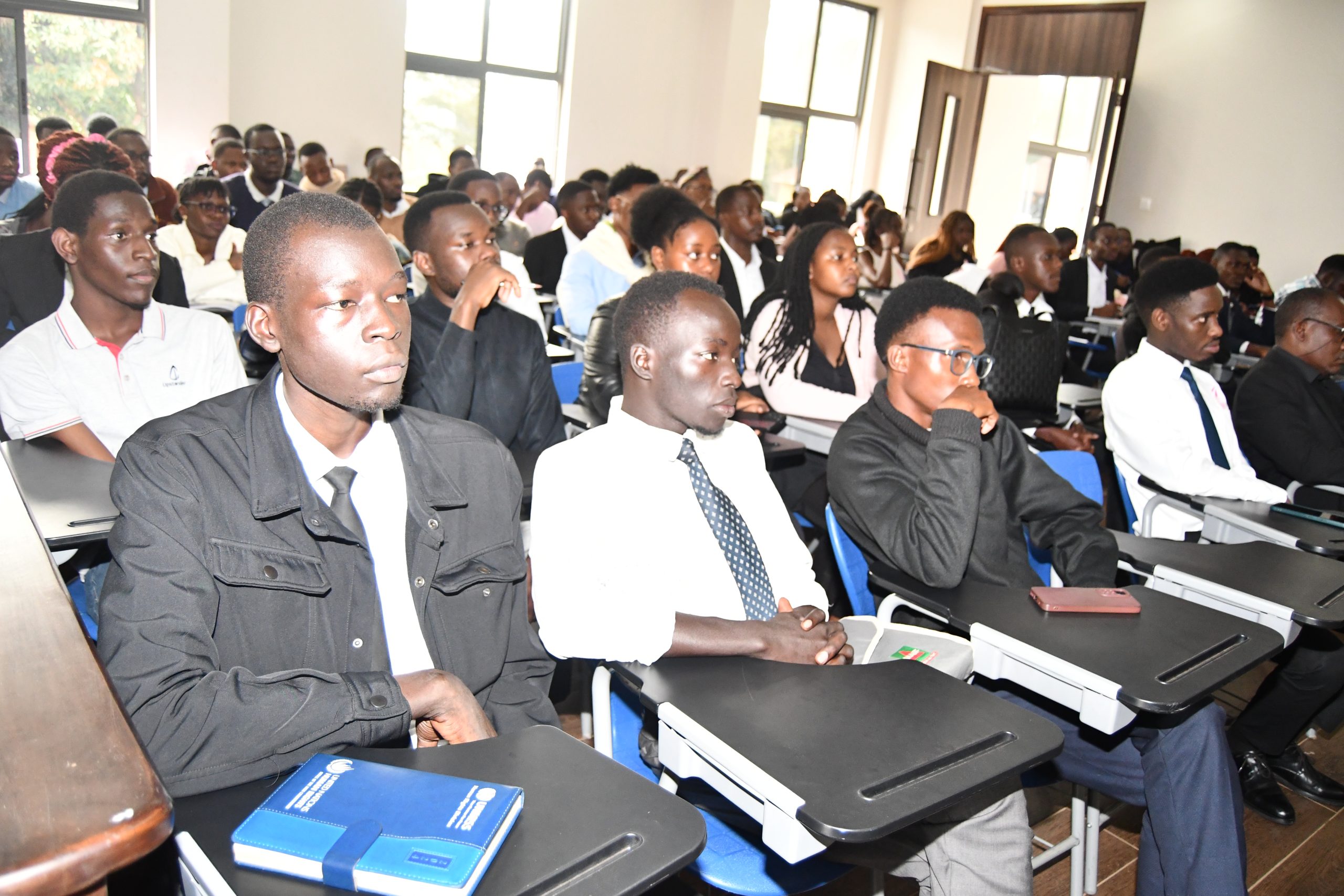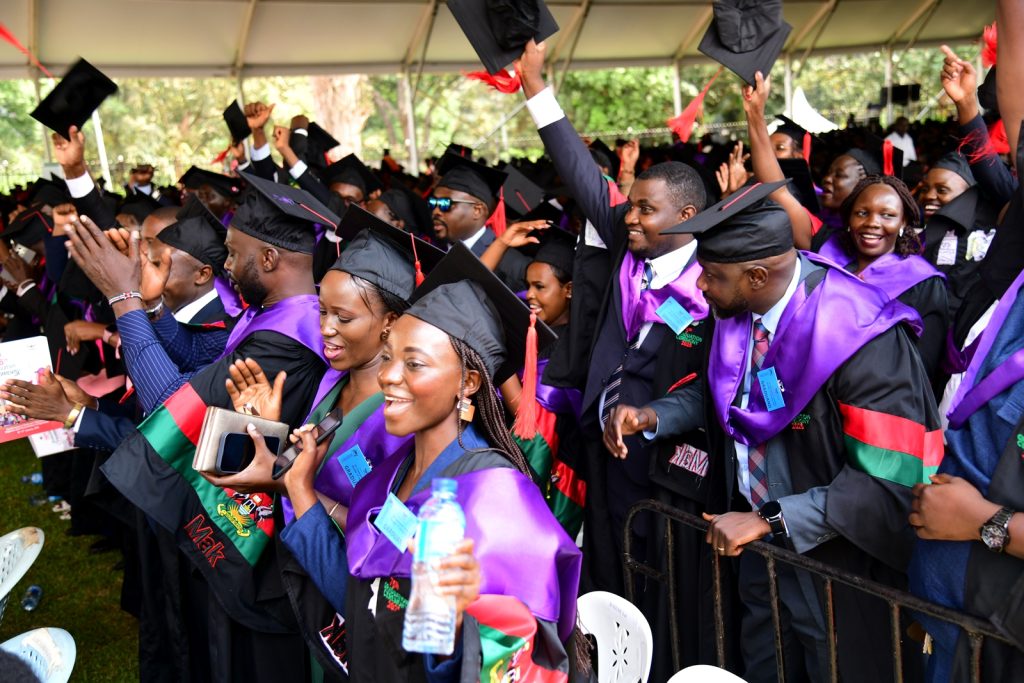SoL Curriculum Review
The School of Law Makerere University has embarked on a Curriculum review exercise with the aim of examining the current programs and to mainstream Human Rights and Gender concerns in the teaching and learning of law.
During a Special Board meeting held yesterday 12th January at the School of Law, it was unanimously agreed that there is need to re examine the current syllabus and pedagogy methods in order to be in line with the current trends nationally, internationally and regionally.

The chair of the meeting, the Ag. Deputy Principal School of Law Dr. Ronald Naluwairo, while sitting in for the Ag. Principal Dr. Damalie Naggita Musoke said management was considering a curriculum review exercise and asked all staff to prepare adequately in order to have a meaningful review.
In his communication, he pointed out some achievements realized in the School that included an award to Dr. Christopher Mbazira from the University of Pretoria for his accomplished works in the field of Human Rights and a book Launch by Prof. Fredrick Jjuuko.
He said although some training in mainstreaming gender and human Rights was conducted, many of the staff needed further guidance in the processes of undertaking a Curriculum review, and that the School of Law asked Mr. Benson Tusasirwe to make a presentation.
Mr. Benson Tusasirwe a Lecturer at the School of Law presented a paper on the topic; WHAT IS CURRICULUM REVIEW AND WHAT DOES IT ENTAIL, With the Purpose of bringing on board all the members who would be involved in the process, prior to the planned curriculum review retreat.
In his paper, Mr. Tusasirwe explained the meaning of a Curriculum which refers to a total learning experience taught by a School and that curriculum review is a process of revisiting and modifying the curriculum taking into account the changing circumstances.
He said curriculum review is intended to help improve by obtaining the needed information for improvement and to maximize learning using available resources by refocusing energies.
He said it was timely for the School of Law to consider a review because of the need to address the new needs, the diversion from the original focus of the Law School, to rationalize the years of growth as well as the need to meet new criteria and standards.
Mr. Tusasirwe further noted that while undertaking a review, the philosophy of the institution should be taken into consideration given that this will help in aligning the mission, Vision, values and the goals espoused by the School of Law.
He urged his fellow academic staff to take into account the purpose of education, what it is that they intend to accomplish, their roles as educators, why they teach what they teach, the interests as well as the knowledge levels of the student and what would help them to learn.
On the process of curriculum review, Tusasirwe pointed out three ways that included assessment, evaluation and mapping. He mentioned the need to undertake a SWOT analysis as well as identifying existing un tapped opportunities.
Prof. Sylvia Tamale who was asked by the School Board to share curriculum review guidelines said as a build up process to the review, there was need for members to appreciate the concepts, the issues and the processes of revisiting the courses.
She pointed out the need to read widely to appreciate new developments that impact on the law internally and internationally, which changes could have rendered some issues obsolete in the face of globalization, noting for instance the increased use of social media, a shift of power like china, and the global economic crises.
At regional level, she pointed out the need to get more knowledge on the issues in African initiatives, and organizations like NEPAD, IGAD and the African union which churns out a lot of treaties and documents which could linked to what is being taught.
At sub-region level, she asked the academic members of staff to critically study the East African integration, the East African Court of Justice taking a closer look at the decisions at that level, while at National level, she cited Vision 2040 and asked the staff to try to merge the vision with what is taught.
Further she pointed out the issue of she Narcotic drugs, cultural, political and religious fundamentalism, trade and investment, Natural resource management with the discovery of oil, issues of institutional collapse, and what it means in reality, expressing concern as to whether the School of Law should continue teaching about institutions that have collapsed.
Prof. Tamale noted that it would be useful benchmark and study Curricula from other Law Schools in the region. Further she noted that in the teaching of Law it was imperative that Crosscutting issues, like gender, disability are mainstreamed and suggested a move from lecturer methods to more interactive methods like the guest lecturers.
Dr. Christopher Mbazira, while highlighting the concern of mainstreaming Human Rights in the Law School Curriculum noted that this would help expose the students to Human rights issues which would be useful while practicing law. He said Chapter IV of the Uganda Constitution highlights Human Rights, defining society values as embraced in international standards.
He pointed out that equality and non-discrimination is one of the values and that although it does not prohibit discrimination, it addresses unfair discrimination, given that different legal processes and principals impact on people differently, such as Children, women, and the poor.
Dr. Mbazira pointed a number of examples in Law where there is need to consider issues of Human rights for instance in Contracts, how contracts can affect persons, Street vending law and how it impacts on the people when implemented, in Commercial law where parties enter into a contract although the bargaining power may be different and above all principle of fairness, justice and human dignity.
In a plenary discussion, the members of the Board noted the need to critically consider concerns of cross border practice and make changes in the curriculum to address the current trends in the region. They cited an example of the recent case where students were denied entry by Council of Legal Education in Kenya for not offering a course in Law of Agency at undergraduate level and the reducing number of International students admitted in the Law School.



